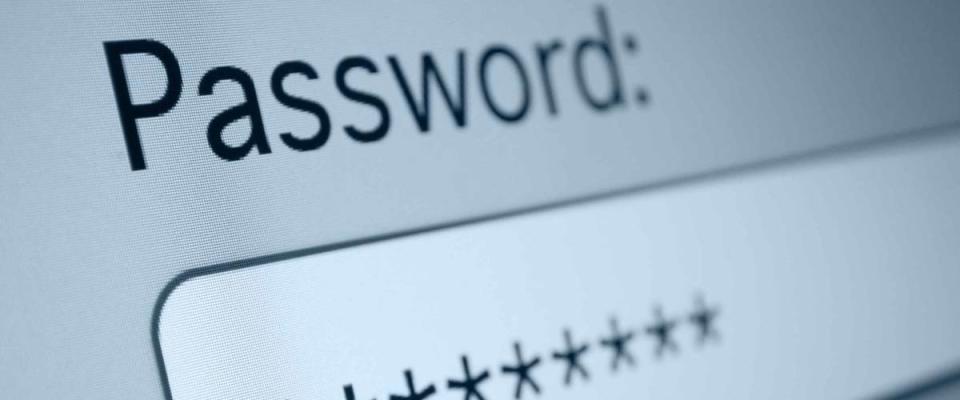Borrower beware: The biggest student loan scams of 2021

Keeping a handle on your finances during the pandemic has been hard enough — but you also have to watch for scammers trying to grab at what you haven't lost to the recession. That’s particularly true if you’re struggling with student loan debt.
The government has hit pause on federal loan payments and interest several times since the crisis began, but scam artists are not giving anyone a break.
Here are four ways fraudsters have been targeting people with student loan debt during COVID, plus some genuine ways to clear your debt faster.
1. ‘Helping’ with your repayment hiatus

Student loan repayment was first put on hold back in March, when shutdowns to fight the virus left millions without work and struggling to pay bills.
After several extensions, the moratorium is currently set to expire on Jan. 31 — but President-elect Joe Biden now plans to keep that relief going for millions of Americans with federal student loan debt.
Lengthening the pause could bring a return of the fraudulent tactics consumer advocates reported last spring, when scammers were calling and directing people to “apply” for the forbearance program. Borrowers were typically asked to provide personal information.
But note: The extension of your repayment break doesn’t require you to apply by phone or fill out any type of form. In fact, you don’t have to do anything at all — the federal government will just keep your loan on hold if it’s eligible.
2. Asking for upfront fees

Some victims have been asked to pay fees for debt relief, including the government’s reprieve from student loan payments and interest. For borrowers weighed down with tens of thousands of dollars in college debt, it might even sound like a good deal.
What the fraudsters don’t want you to know is that the current forbearance and various services offered by the U.S. Department of Education are available at no cost.
Those services can allow you to change your repayment plan, consolidate your loans, help you qualify for loan forgiveness programs already available, or get your loans out of default.
“If you are contacted by a company asking you to pay ‘enrollment,’ ‘subscription,’ or ‘maintenance’ fees to enroll you in a federal repayment plan or forgiveness program, you should walk away,” the department says.
3. Promising total loan forgiveness

Biden has proposed forgiving $10,000 in federal student debt per person. With Americans currently holding more than $1.7 trillion in student debt, the plan would not only help borrowers, but it also would help stimulate the economy during the recession.
Naturally, scam artists see an opening — so don’t be surprised if a company offers to help you get student loan forgiveness immediately.
Biden hasn’t even taken the oath of office yet, so be more than a little suspicious if you receive a pitch like that from any person or company.
The Education Department says no one can offer immediate — or, for that matter, total — loan forgiveness.
“Most government forgiveness programs require many years of qualifying payments and/or employment in certain fields before your loans can be forgiven,” the department’s website states.
4. Requesting sensitive information

Beware of any company that contacts you requesting student borrower information that should be kept personal, including your Federal Student Aid ID or password.
That ID is akin to your written signature, according to the Department of Education, which says it will never ask you for it, and other companies shouldn’t either. With access to your ID information, a scammer might make all sorts of changes to your account without your knowledge.
It’s even more serious if a company asks you to give it power of attorney over your student loan account. Fraudulent companies want these authorizations so they can change your account and contact information — potentially to commit identity theft.
Legit ways to deal with student debt

Refinance your loans
If your loans are from a private lender, you may be able to significantly drop your monthly cost by refinancing your student loan into a lower interest rate. Rates have dropped to all-time lows during the pandemic.
But it’ll be hard to qualify for a super-low refinance rate without a decent credit score.
If you’re not sure about your score, use a website that will let you check it for free and give you personalized tips on how to boost it, if it’s not in great shape.
Take your payments off pause
Though it looks like the breather from federal student loans will be extended under the incoming Biden administration, why not make your payments anyway?
It’s tempting to keep taking advantage of the moratorium, especially if your financial situation is dire. But making your regular payments — and even paying more than you usually do — is a smart idea, if you can afford it.
Since the interest rates on federal student loans are currently frozen at 0%, any payment you make now will go entirely toward the principal of your loan. That means you’ll be able to take a much bigger chunk out of your debt than you normally would, and make it all go away more quickly.

